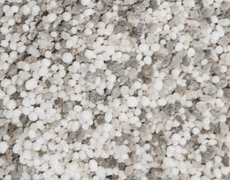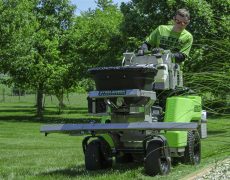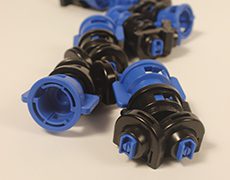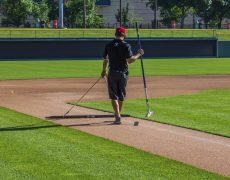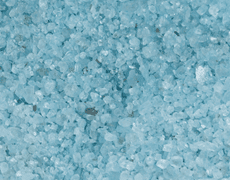Calling All Soldiers
-920x450.jpg)
A good enemy knows when best to attack. It seems that while we were all enjoying a fun-filled Labor Day weekend, one of our turf enemies took advantage that our guards were let down. Armyworms abound in Tennessee, affecting turfgrass varieties ranging from hybrid bermuda to tall fescue. Our Nashville sales team has fielded numerous calls this week from every type of managed turf in the state, from golf courses and sports fields, to home lawns.
On higher mowed turf, such as a home lawn, initial damage is often disregarded. Large brown areas appear on the turf, and many simply diagnose it as drought stress. Upon closer investigation, you are likely to find dark brown larvae that are anywhere from 1″ to 1 1/2″ in length at maturity.
.jpg)
.jpg)
These photos are courtesy of Josh Whitaker from Performance Lawns in Mount Juliet, TN. Notice the appearance of drought stress from a distance. Upon closer investigation, you can see the armyworms circled in red. These larvae feed most readily on lush green turf. Once they have fed off an area, they appear to march in large groups to another food source, hence the name armyworm.
Chemical control is available for armyworms, but one application is often not 100% effective. Upstar Gold and ArmorTech Guillotine are just a few products that provide control for armyworms. During most years, parasitic enemies keep armyworm populations down to a controllable number. However, a cold, wet spring, like the one we just experienced, reduces the effectiveness of these parasites and allow large populations of armyworms to develop.
The old adage to not judge a book by its cover fits well here. Look beyond the initial symptoms shown by turf and dig beyond the canopy into the root cause of the problem. As always, contact your local Advanced Turf rep for advice and recommendations!
Kurt Dryden
ATS Sales Representative
